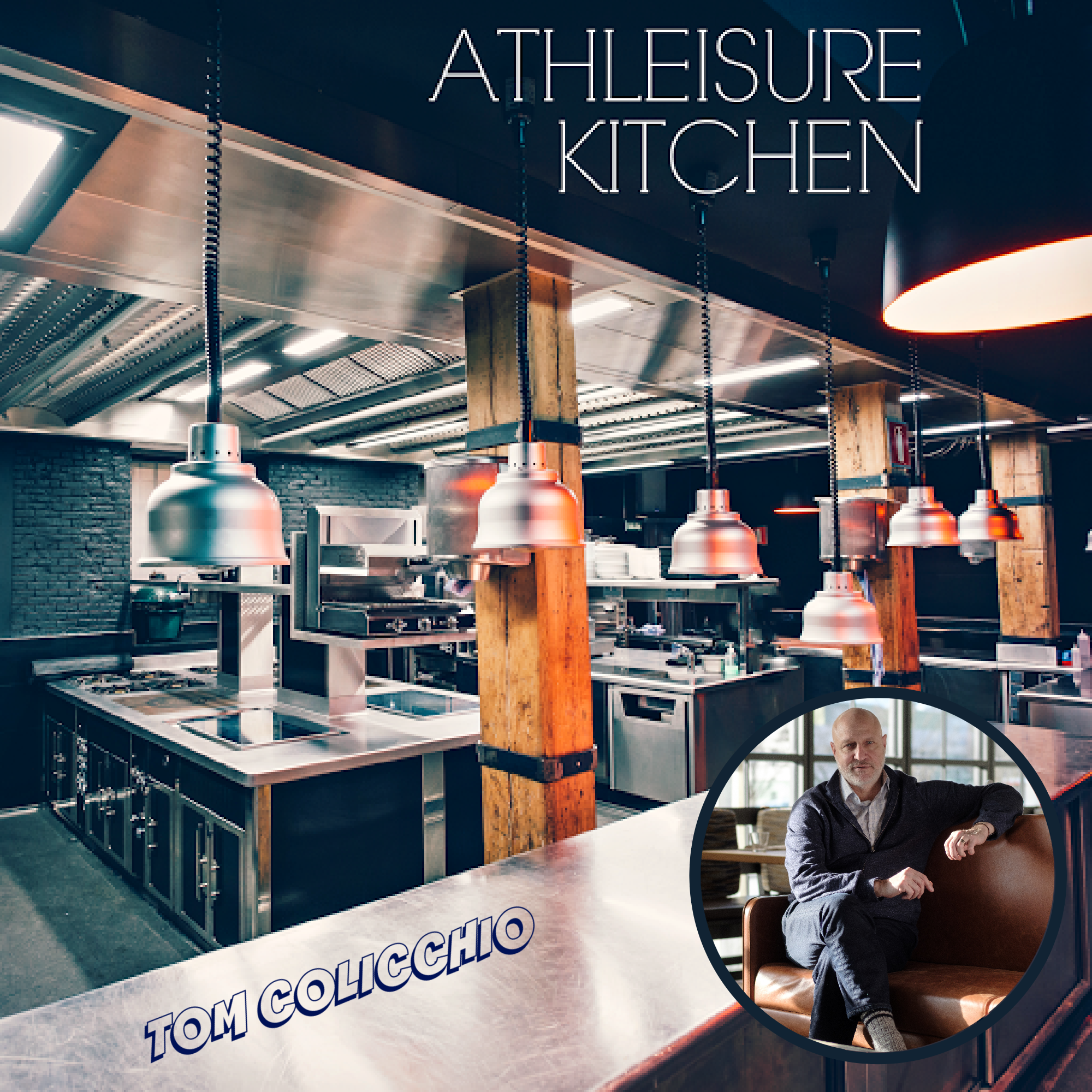AM: It’s an interesting point about how C-CAP focuses on the skills needed and that you serve a specific community in order to have them excel in the culinary industry. When we were at your 30th Anniversary Benefit, it was a pleasure to see C-CAP students working side by side with some of the most esteemed chefs who own their restaurants as well as being food TV personalities. Seeing the pride and how inspired they were was amazing. It had to be a boost to their confidence to see people enjoying their food and being in that environment. That’s a resume builder.
RG: Yes, I learned very early when I was teaching. The importance of teaching is to empower others. I found ways to empower housewives so that they could talk to their butcher and all of a sudden relationships were being built! They would come to me and say, “oh Mr. Grausman, what you told me about that leg of lamb – I went to my butcher and told him and he looks at me like I am a professional!” I told them just a few words and it made all the difference! That’s the same thing that I did at C-CAP. By teaching the students certain techniques, that when a professional chef saw them accomplish those things, they were impressed at their capability.
One example at a competition was that I had the Executive Chef of the Four Seasons Hotel in NY as a judge and she came to me and said, “Richard, that young man is really great! Do you think that I can have him work for me?” I told her to give me her card and we gave him a scholarship to go to the French Culinary and she hired him. He would call me everyday and say, “Mr. Grausman, I have to make a salad today and I don’t know how to do it.” I told him that in my book, there are 3 great salads and to make one of those. This went on for months and then the chef called me up and said that she had to let him go. Since they had a union, other people were complaining that he wasn’t doing what everyone else was and that was because when I knew Damien in highs school, he was taking care of 2 younger siblings and one parent had died and one was ill. He was working at Kentucky Fried Chicken closing it at 2am and mopping the floors and his teacher had taught him the skills that were involved in our competitions and he was spectacular at it. That’s why the chef wanted him and I empowered our students to impress these chefs to get into the kitchens with the exception of him because of the unions.
Every kitchen that our kids went into even though they weren’t up to the standards that the chefs thought they were after seeing them. They were capable of learning and being trained. I got them into the kitchen. Those were the little secrets that I used to focus on because you want teachers to be able to effectively teach their students these skills. You can’t ask them to do more than what is realistically achievable and that is what is the problem with our education today.
They set goals and standards that aren’t achievable because what happened before they got into the 9th, 10th and 11th grade wasn’t achieved. So, if you are reading at a 3rd grade level in the 9th grade and you’re supposed to be reading at a 10th grade by the time you’re out – kids drop out because they can’t do it.
AM: It becomes frustrating!
RG: Exactly, unless you go back down, and solve those problems at the time, you’re not going to reach them. The first year that I was doing this, I was asked to be on a council as an advisor for the Board of Ed and I ran into a situation where a student in their junior year was given a scholarship to the Natural Gourmet School here in NY. I followed up in the summer and asked how he was doing. I was told, “Richard it was very strange. In the first class, he was fantastic. I had him come up because his knife skills were so good that I had him demonstrate for the rest of the class. But then he didn’t show up the next day.” I asked what she said to the rest of the class when she let them go. She explained that she had asked them to read chapters 1-5 and that they would work on it the next day. I called his high school teacher and asked why she thought that the student didn’t show and relayed what happen at the NGS and she said, “oh that’s it. He doesn’t read.” A junior in high school doesn’t read. I wanted to know how he was able to be a junior unable to read. His teacher explained that he was able to maneuver around reading by opting out. So as I sat on this council, I asked how they could allow a student to get that far and not read. They explained that I didn’t understand how they have kids attending the schools who have various language problems and they have to move them on. I believe that after 3rd grade, if they don’t read, then before they move on you have to make sure that they do. Those on the council said that that is tough because you have to keep them with their age group and they felt that because they have to teach them math and history, it was better to continue with them moving on from grade to grade. But the answer is if they can’t read you need to keep them reading, reading, reading because they can’t learn anything regardless of the subject. I don’t know what the situation is like today – if they’re still dropping out because they can’t read. But this was back in 1990 and to me, that’s the major problem and you solve it. How do you solve it? You find all different ways that you can teach them – there’s Sesame Street – education is something that I am very interested and passionate about. I am frustrated because I don’t often see the imagination and creativity in solving problems. They identify problems and identify solutions but when those solutions don’t work, they will find another solution – find out the root of the problem and why those solutions don’t work.
Hopefully, one of the reasons why I established competitions was that teachers weren’t teaching the skills necessary to get the jobs. The curriculum was so vast, they couldn’t repeat something. You can’t learn knife skills without repeating. You can’t learn how to make a sauce properly without repeating it. There are certain things that you need in cooking competitions. Teachers that go through our competitions will tell me, “Richard, thank you so much. I never thought that I could get one of my kids a scholarship to Johnson and Wales and you gave me the other opportunity – but it was hard. I had to work with them after school." I asked why they didn’t work with them during class, and why don’t you work with all of your students and not just 1 or 2 of them? They explained that they couldn’t give knives to some of the students or that they weren’t interested. So they take the ones that are and train them. For years, I have worked on ways to get teachers to be able to focus on hard skills and soft skills. The only way that I could get them to do it is through the competitions. I have now been working on something that I called, C-CAP Approved. It’s an assessment, skills that I first gave to the teachers that they should work on. I have found that the teachers would like to do that, but the administration won’t let them. So we’re working on NY now and we’ve evaluated their benchmarks and in doing that, we cut down the things that students need to learn. Now they want us to do an assessment test and if that goes through, we’ll have the piece that I’ve been visualizing for 15 years which will be mandated to the teachers as what has to be taught. These few skills that will be meaningful to the industry. If I can pull that in NY, I can roll that out. When I look at the students that are in those classrooms now, if the teachers said we’re all chopping and who will be the fastest and to develop a bit of the sport of it by getting them excited to perfect their knife skills. Americans in today’s youth, if they don’t get it right away, they drop it. If you come to a competition, we do a dish that has turned potatoes. Chefs would ask me why I would teach it because they don’t do that anymore and if they do, they get them from Mexico. I said it was there because the average teenager will try to do something and then quit. But if they stick with it long enough to turn a potato, there is nothing that you can give them that will take more time and patience so I’m not afraid of them quitting on you. They will work. It’s a vehicle to achieve a certain result. It’s to teach repetition and willingness to do something. I have been using the same recipes for competition for a while. We changed from salmon and beurre blanc to poached chicken to a sautéed chicken that we use now. The dessert was always crepes pastry cream and chocolate sauce – it still is. The teachers will say, “Oh Richard, can’t we change the competition recipes. We’re so sick of it.” I tell them that you can’t get sick of it because the students can’t get sick of it. If they’re a chef in a restaurant and they’re making this chicken dish on their menu, It has to be made good or better each time that they make it. They can’t get tired of making it and they have to find something in it that drives them on.
When all of your students are making the chicken perfectly or the crepes perfectly, I will consider changing it. Some years the teachers focus on the crepes and they come out thin and beautiful and I’ll begin to think about changing it and then the next year, they’re coming out thick. The chefs that come to judge they see the techniques that the students have to do to create these dishes and they appreciate it. They say, “you’re old-time but it’s good because they are learning their basics.” In time, I won’t be here and somebody else will come and the skills may change because the industry is changing all the time. There may be skills that we should be teaching for those that are going into Fast Casual to other ends of the business. I want to know what those are and if they are teachable at the high school level then we should do that. Basically, what we’re doing is teaching discipline, attention, focus, sanitation safety and you can’t teach this overnight.





































